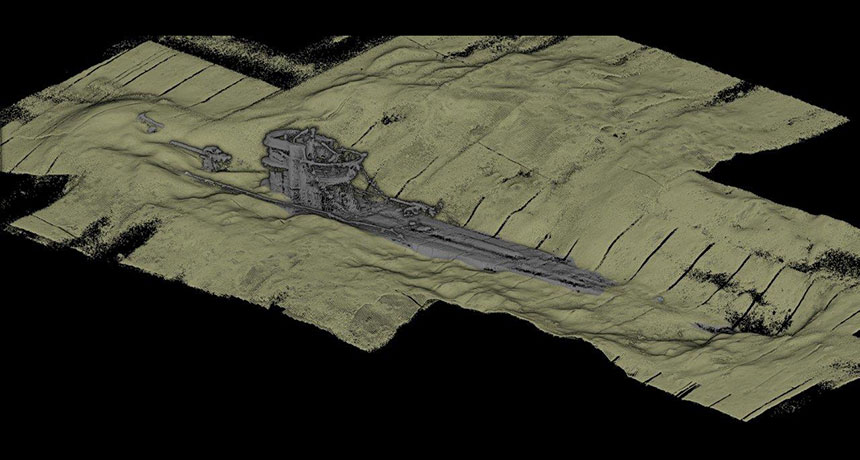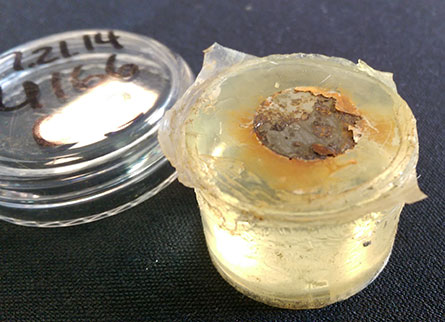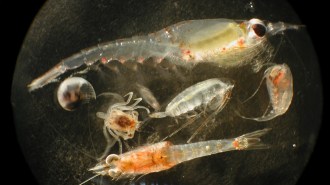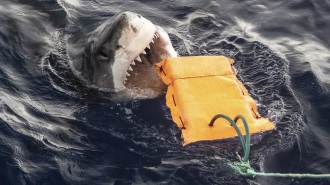Gulf oil spill could hasten corrosion of shipwrecks
Metal parts decay more slowly in pristine water, study finds

SUNKEN TREASURE Oil spewed during the 2010 Deepwater Horizon spill may quicken the corrosion of historical shipwrecks such as the World War II U-boat U-166, pictured here in a 3-D scan of the seafloor.
BOEM/C&C Technologies, Inc.





